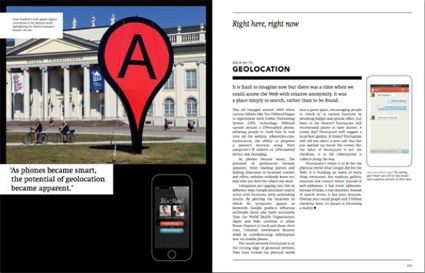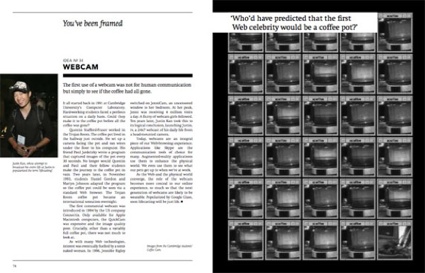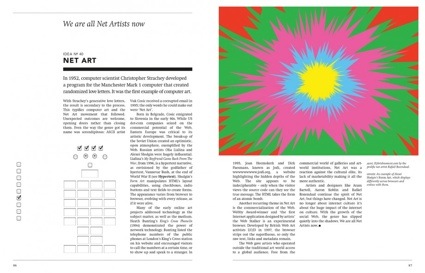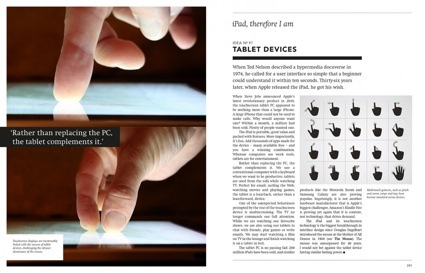100 Ideas that Changed the Web, by Jim Boulton, curator of Digital Archaeology, an organisation that seeks to document the formative years of digital culture and raise the profile of digital preservation.
Available on Amazon UK and USA
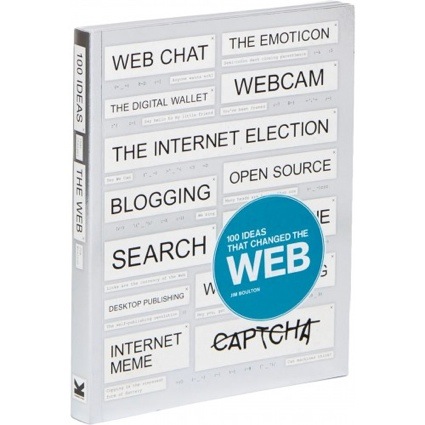
Publisher Laurence King writes: This innovative title looks at the history of the Web from its early roots in the research projects of the US government to the interactive online world we know and use today.
Fully illustrated with images of early computing equipment and the inside story of the online world’s movers and shakers, the book explains the origins of the Web’s key technologies, such as hypertext and mark-up language, the social ideas that underlie its networks, such as open source, and creative commons, and key moments in its development, such as the movement to broadband and the Dotcom Crash. Later ideas look at the origins of social networking and the latest developments on the Web, such as The Cloud and the Semantic Web.
Following the design of the previous titles in the series, this book will be in a new, smaller format. It provides an informed and fascinating illustrated history of our most used and fastest-developing technology.
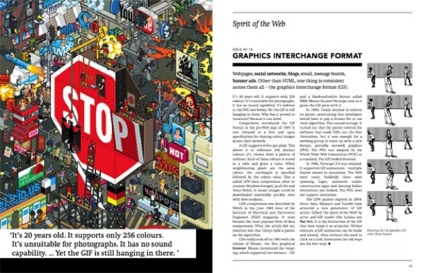
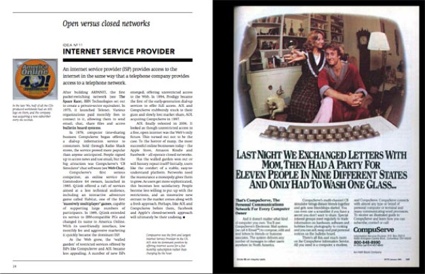
The book had me at page 8, the one that says “The idea of the internet was born in Belgium.’ I was born there too! How thrilling! That idea, thus, was born at the Mundaneum, an institution which Slates calls a ‘Proto-Internet made of index cards’ and Speigel defines ‘an analog version of Google’. Created in 1910, the Mundaneum had the ambition of collecting all human knowledge and classify it according to a system that Belgian lawyer Paul Otlet and Nobel Peace Prize winner Henri LaFontaine called ‘Universal Decimal Classification’. While this networked world relied on index cards and telegraph machines, it nonetheless anticipated the hyperlinked structure of today’s Web.
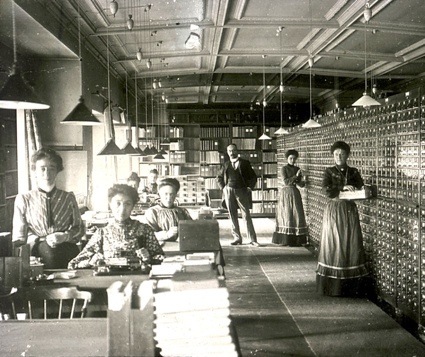 The answers had to be searched for by hand, and that could take weeks. The index card system was developed in 1903 by Otlet, seen here in the same year (via)
The answers had to be searched for by hand, and that could take weeks. The index card system was developed in 1903 by Otlet, seen here in the same year (via)
100 Ideas that Changed the Web is a thick, compact book that charts the key moments that made and make the Web. The author presents one idea over two pages. One of them being the short essay, the other is the image that illustrates the concept. The book follows a logical and chronological order. The 20 first ideas are about the vanguard that paved the way for the creation of the Web. Ideas 21 to 53 are about the early days of the Web. These were times of experiments and wild dreams. The following 20-ish ideas deal with the pre-social era of the Web, full of ups (PayPal) and downs (that dot-com bubble). Ideas 74 to 98 brings us into the right here, right now of the web. The last two ideas look into the future.
The book is very upbeat and celebratory. It makes me love the fact that i lived from dial-up modems (don’t miss understand me: i’d never ever want to go back there) to the era of Big Data. It also reminded me of the importance of ideas i either take for granted nowadays (eBay!! or real-time reporting) or had almost forgotten (The Blair Witch Project, a film that accumulated a series of ‘first time ever’, one of them being that its promotion relied heavily on a website.)
I think it’s a book anyone might enjoy. It sums up efficiently important concepts and allows readers to take a step back and look at how much their lives have changed in a relatively short period of time.
With that said, i feel that the book is glossing over the unpleasant aspects of the web: the trolls, the spam, the scams, the mass-surveillance, the revenge porn, the platforms that are closing themselves, etc. All are corollaries of those magnificent 100 ideas that changed the web.
More views inside the book:
